As the sun sets over the bustling streets of Tokyo, the city comes to life in a new way. Neon lights illuminate the streets, people pack in droves to watch Studio Ghibli’s latest anime release, and laughter and chatter fill the air as others chow down on street food. But for some, the night holds a different kind of adventure – a journey into the world of Japan’s love hotels.
From the outside, love hotels may seem like just another quirky aspect of Japanese culture. But delve more profound, and you’ll discover a fascinating place with a long history and unique features that make it, unlike anything you’ll find elsewhere in the world.
In this blog post, we will explore the dynamics, history, features, and overall culture behind Japanese love hotels in Japan. We’ll also learn why a love hotel might be the perfect place to stay in Japan, even if you’re not seeking romance.
Love Hotels in Japan: A Brief Background
Love hotels in Japan are a familiar concept. They’re essentially short-stay accommodations that offer hourly or nightly rates, catering to couples seeking privacy and intimacy. Rooms are available for a few hours, usually one to three hours, or for an overnight stay until 9 or 10 am.
Unlike the no-tell motels in other parts of the world, though, love hotels aren’t seen as trashy or sleazy (though some are certainly sleazier than others). They fill a real societal need for a country with multiple generations living in tight quarters.
Prices for a few-hour stay typically range from ¥2,900 to ¥7,000, while a full-night stay can cost anywhere from ¥3,900 to well over ¥20,000, depending on the date and the hotel. Additional charges may apply for room service items or gadget rental (more on that later).
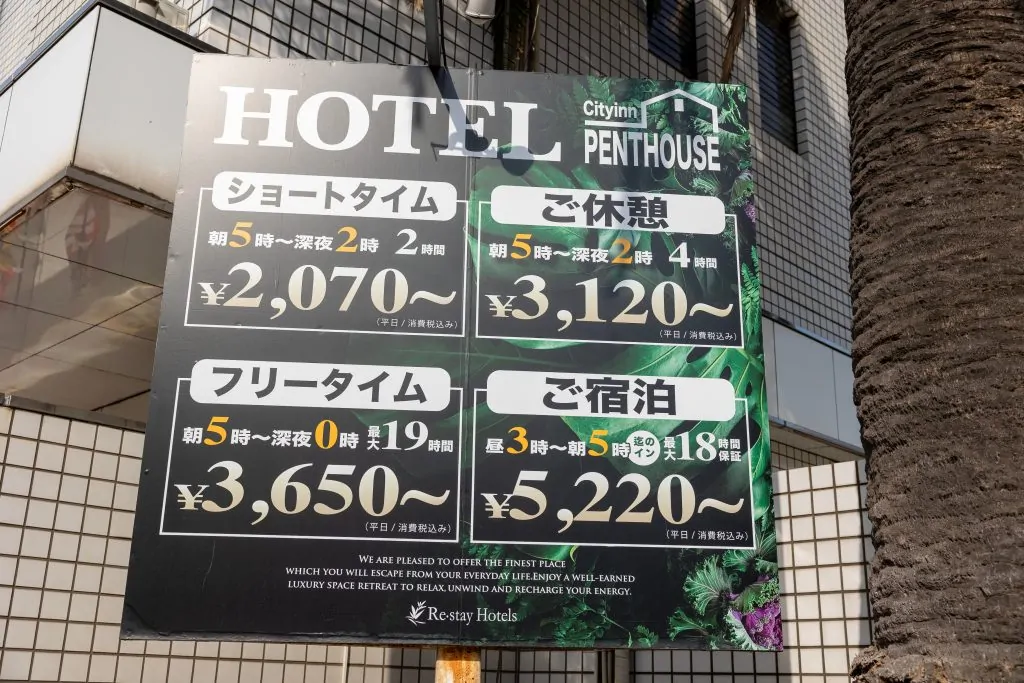
The term “love hotel” is said to have originated from Hotel Love, which opened its doors in Osaka in 1968. Soon after, love hotels began popping up across Japan in their thousands. Eventually, the country’s unique love hotel aesthetic (think swinging 60s on steroids) spread to other corners of the globe.
The Cultural Evolution of Japanese love hotels
Initially, these hotels were designed as short-term accommodations for couples seeking a little privacy. During the early postwar era, young couples in Japan often lived with their extended families, leaving them with few opportunities for time alone.
Love hotels provided an escape from the watchful eyes of family members. They gave couples a chance to indulge in romance without interruption. And the government minded less than Westerners might suspect – the post-war Japanese government prioritized boosting the birth rate, and love hotels certainly helped.
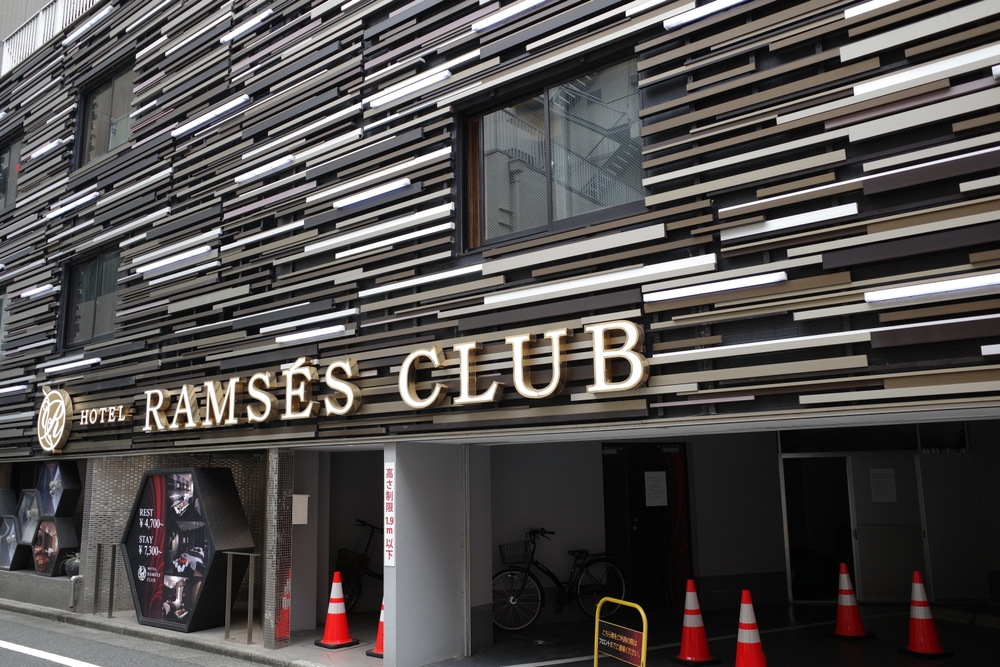
During Japan’s economic boom in the late 1980s and early 1990s, love hotels became a symbol of status and a go-to destination for couples on a date. The popularity of these hotels was so high that the competition between hotel operators became fierce, leading to the creation of themed hotels that catered to a wide range of clientele and preferences. The options were endless, whether it was a jungle, fairytale, or Hello Kitty-themed hotel.
The era of crazy, over-the-top love hotels started to wind down in 1984 after public morality legislation put love hotels under the jurisdiction of the police. Coupled with a shift towards attracting a wider clientele, this has meant that the line between a love hotel and a regular hotel is becoming more blurred.
Love hotels have become so widespread in Japan that it’s been humorously suggested that many Japanese people in their late twenties and thirties were likely conceived during a romantic rendezvous at one of these establishments. While there is no way to find conclusive proof of this notion, it speaks to the widespread popularity of love hotels during this time.
Love Hotels in Japan in the Modern Day
Love hotels remain a prominent fixture in both Japan’s dating scene and the sex industry. They’re also gaining popularity as an affordable accommodation option for tourists.
However, as more single individuals live independently, they don’t need the privacy of a love hotel to meet with their partners. This societal shift has left some love hotel owners reeling while others seek out new, less risque markets.
Although estimates suggest that over 10,000 love hotels are scattered across Japan, occupancy rates usually hover around two-fifths full on weekdays. In light of this data, coupled with the country’s limited accommodation resources ahead of the Tokyo 2020 Olympics, the Japanese government announced plans to transform some underperforming love hotels into standard lodging facilities.

Other hotels have adapted by targeting new clients. Ones in rural areas and near highways now target business people, while others advertise as an affordable option for family vacations.
Furthermore, some love hotels have taken it further by offering customized service packages for special events, such as birthday parties, bachelorette parties, and group beauty retreats for women. Couples can also enjoy aesthetic spa programs that include hot springs and saunas, providing a unique and indulgent experience that’s more honeymoon and less secret rendezvous.
What to Expect from Love Hotels in Japan
Though you will see love hotels marketed under that name, you may also see them called “fashion hotels,” “couples hotels,” “adult-only hotels,” or, most confusingly, “boutique hotels.” This is to avoid being categorized as a love hotel in the eyes of the law and to cater to a broader clientele. If it offers short stays, though, it’s a love hotel.
You may also notice that love hotel’s marketing is geared toward women. One study found over 90% of love hotel bookings were made by women.
Even if you’re a solo female traveler, you may want to stay at a love hotel. Japan’s other budget accommodations, like capsule hotels, are often men-only.
Size Matters
One thing that immediately stands out in a love hotel is the size of the rooms, as the average love hotel room is much more spacious than your standard master bedroom in a Tokyo apartment. That’s one reason love hotels have been successful in their crossover appeal.
With an average size of around 20 square meters and some of the more lavish suite rooms ranging from 25 to 80 square meters, these accommodations offer more than enough space to indulge in your romantic fantasies or simply stretch out.
Let’s Talk Amenities
You can expect to find an array of amenities when you step inside a love hotel in Japan.
You’ll typically have a fully-equipped bathroom with a Jacuzzi bath and shower and a large flat-screen TV that offers a video-on-demand service. For those who wish to whip up a quick snack, a small kitchen area with amenities such as a kettle, microwave, fridge, and mini-bar is often available.
But not just the big-ticket items make love hotels so appealing.
These rooms come fully stocked with all the little things you might need during your stay, from toiletries like shampoo, conditioner, and body soap to indulgences like razors, hairdryers, facial cleansers, bath salt sachets, combs, and more. And for those seeking extra protection, you’ll always find condoms free of charge, typically in a discreet box near the bed.
Wait, There’s More?
Love hotels in Japan truly go above and beyond in catering to their guests’ every need, offering a wide range of product rental services that go beyond your typical hotel amenities. From phone chargers to massage gadgets or even sometimes sex toys, love hotels have got you covered. You’ll find a comprehensive list of these rental options in a handy booklet on the coffee table or on the TV screen’s main menu.
But it’s not just about the products – love hotel managers in Japan know customer service is key to ensuring guests have the best possible experience. Unlike regular hotels, they can’t rely on repeat business, so each stay needs to be perfect. Don’t be afraid to ask for what you need!
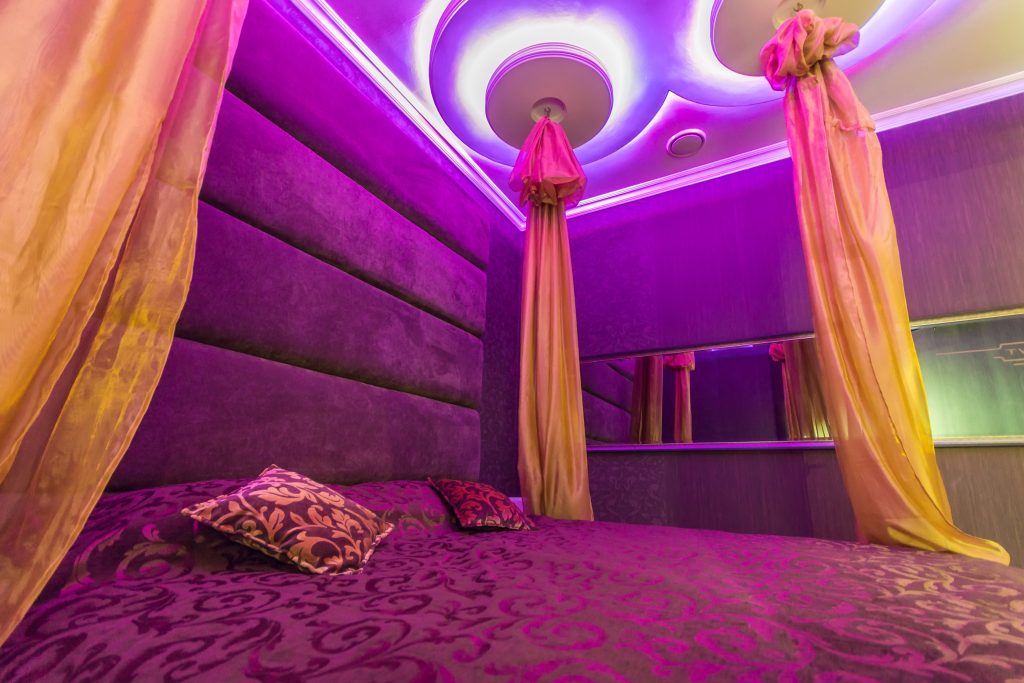
Love hotels in Japan also sometimes offer loyalty card programs, allowing frequent guests to earn rewards such as luxury bags, tickets to exclusive events, or gift certificates for high-end restaurants. However, be prepared to pay a premium for a short stay at a higher-end place, with rates ranging from a few thousand yen to up to ¥10,000 for an all-night stay, depending on the location.
Prices in central Tokyo can skyrocket, particularly on weekends and holidays, while more remote areas may offer more reasonable rates. Nonetheless, it’s worth noting that, unlike regular hotels in Japan, love hotels charge by room, not per person.
As you step inside an adult-only hotel, you’ll likely be met with a high-tech touch-screen displaying a range of room options. Once you’ve selected your desired love nest, you’ll go to the check-in counter to complete the transaction and collect the keys.
But don’t be surprised if the check-in process is somewhat discreet. Some love hotels have designed their counters to be partially obscured, allowing guests to maintain anonymity and avoid any potential awkwardness when interacting with the staff.
How to Choose the Right Love Hotel
If you’re planning to explore the wide world of love hotels in Japan, choosing the right one for your needs is essential. While popular entertainment areas such as Shibuya, Shinjuku’s Kabukicho, and Ikebukuro are known for their high concentration of love hotels, you can’t guarantee that anyone will be clean and safe.

Fortunately, there are several ways to find the best love hotels in any major city. One way is to look for areas with a high concentration of bars and clubs, as love hotels are often located nearby – quite a clever business tactic, to be honest.
Alternatively, you can use ranking sites like Happy Hotel or Couples and their associated apps, such as Couples Navi, from the Couples dating website. While these sites are in Japanese, they feature plenty of pictures and information to help you browse and choose your favorite love hotel – and when in doubt, social media platforms such as Tiktok and Instagram will undoubtedly serve up tons of recommendations.
Closing Thoughts
Love hotels have become an integral part of Japanese culture, serving as a unique and often quirky aspect of the country’s hospitality industry. These hotels, with their themed rooms and discreet entrances, offer a private space for couples to express their love and intimacy; nonetheless, they also represent something more culturally significant than just a place to stay.
Love hotels are also a great and often more affordable way to travel around Japan, even if you go solo they can be a good alternative to business hotels. You get a safe, private, and spacious room filled with amenities to help you unwind.
The next time you find yourself in Japan, don’t be afraid to explore the world of love hotels. You never know what you might discover.



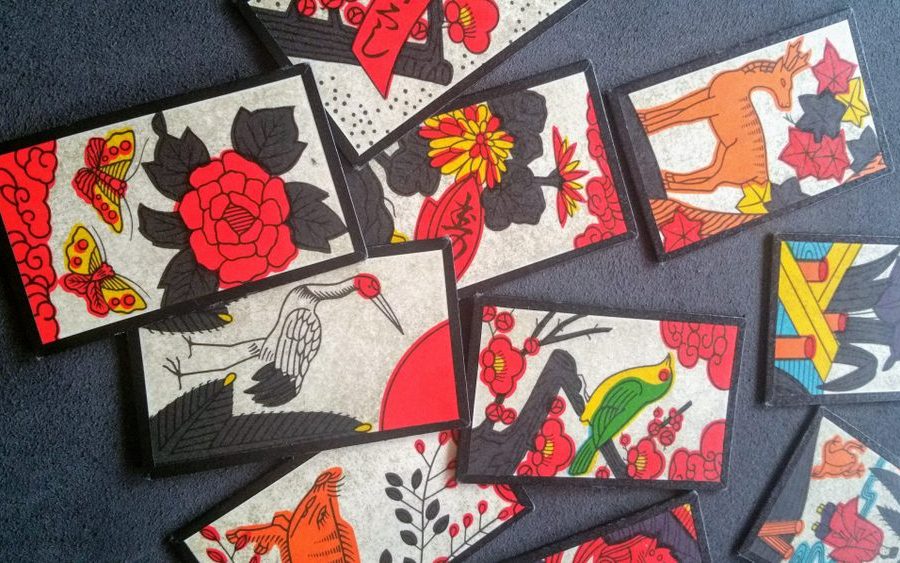
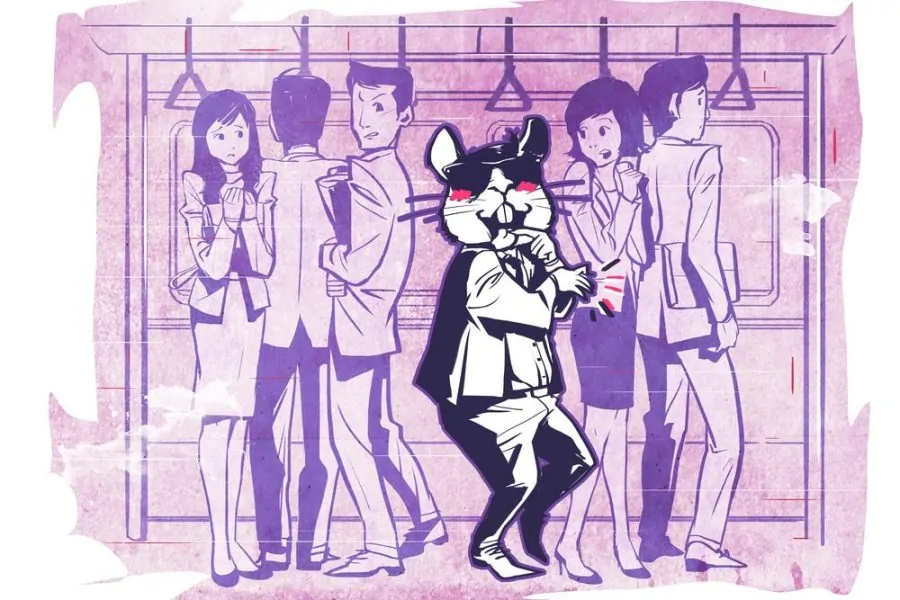
Leave a Comment